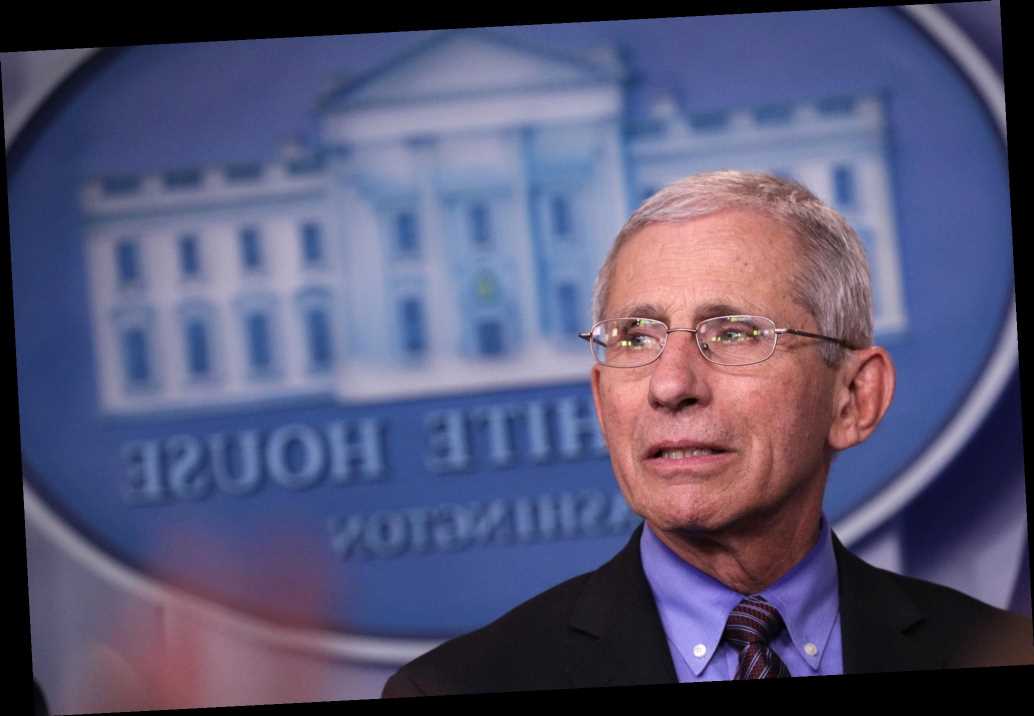For his critics, Anthony Fauci cemented his status as the Rasputin of public health with his Senate testimony the other day.
The National Institutes for Health official gently, but unmistakably, struck a different tone than President Trump, earning rebukes from radio talk-show hosts and Fox News anchors, as well as fueling the outrage of the #FireFauci claque on Twitter.
Although Fauci’s every utterance is now examined with the same care as pronouncements of the pope, his words weren’t exactly earth-shattering. He said that if there are careless reopenings, “we will start to see little spikes that might turn into outbreaks.” Does anyone doubt that’s a possibility?
No serious person would argue that there are no hazards to reopening, only that some level of risk is worth taking to begin
to ease the nation’s economic calamity.
Anthony Fauci is an important voice in this debate, if only one voice. He is neither the dastardly bureaucratic mastermind imposing his will on the country that his detractors on the right make him out to be, or the philosopher-king in waiting that his boosters on the left inflate him into. He’s simply an epidemiologist, one who brings considerable expertise and experience to the table, but at the end of the day, his focus is inevitably and rightly quite narrow.
This is why it’s a tautology for Fauci’s critics to say that he’s focused on the disease above all else. This is like saying the commerce secretary is too consumed with finding business opportunities for US companies, or the head of the Joint Special Operations Command has an unhealthy obsession with killing terrorists. What else are they supposed to do?
As a breed, epidemiologists tend to focus on the worst case. They don’t want to be wrong and contribute to some deadly pathogen getting loose, when their entire job is to keep that from happening. So they are naturally cautious. This, too, is as it should be. You probably don’t want a risk-taking epidemiologist anymore than you want a highly creative, envelope-pushing accountant.
For all these reasons, you wouldn’t choose an epidemiologist to run your country, either.
And Fauci isn’t. President Trump has remained completely undomesticated in the White House. The idea that he has now, as some of his supporters imply, been seduced, bullied or otherwise manipulated by a mild-mannered, nearly-80-year-old doctor is bonkers.
The reason Trump issued his shutdown guidance was that the prospect of an uncontrolled spread of the virus was too risky to contemplate.
Since populist critics of the shutdowns don’t want to criticize Trump, let alone say that they think he blew one of the most consequential decisions of his presidency, they focus their ire on the director of the National Institute of Allergy and Infectious Diseases instead.
In the attention-getting exchange between Sen. Rand Paul and Fauci at the Senate hearing, both were right. Paul is obviously correct that we shouldn’t elevate one person as the authority to whom everyone submits, and Fauci was right that he’s a scientist who doesn’t even try to give advice on matters outside his ambit.
Part of the right’s hostility to Fauci is an understandable reaction to progressives putting him on a pedestal. Fauci’s views should be taken seriously, but they can’t be determinative.
The coronavirus crisis is a radically different phenomenon than, say, the Ebola outbreak, because it implicates our entire society. What relative weight to give to the economy and public health — among many other weighty public-policy questions — is way above Fauci’s pay grade.
This is what we elect presidents, governors and mayors to decide. It’s their responsibility to balance the competing considerations, and if they are found wanting, they lose their jobs.
Anyone in this position obviously wants to hear from experts, though. Which is why if Trump really did fire Fauci, some other meddlesome epidemiologist would emerge soon enough. If Fauci didn’t exist, we’d have to invent him.
Twitter: @RichLowry
Source: Read Full Article
